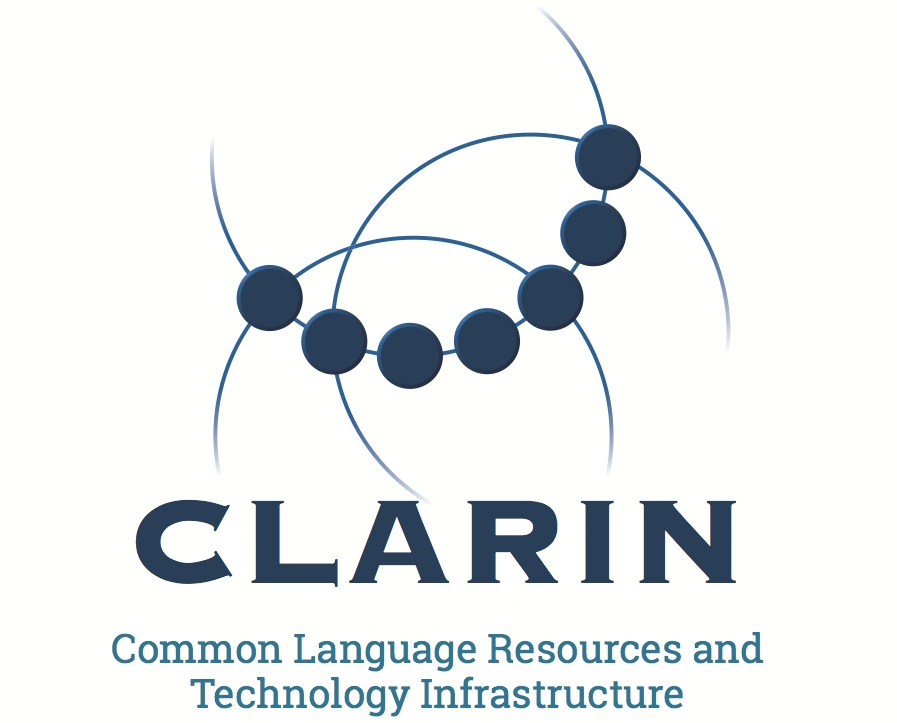Event
CLARIN Annual Conference
The event will be prepared by CLARIN ERIC, in collaboration with LINHD -Digital Humanities Innovation Labies Innovation Lab- and UNED -National Distance Education University of Spain.

Final decision on the conference format will be taken closer to the dates of the event, and all authors of accepted contributions will be provided with a possibility to present their work either in person, or in the virtual context.
CLARIN2021 is organized for the wider Humanities and Social Sciences communities in order to exchange ideas and experiences with the CLARIN infrastructure. This includes the design, construction and operation of the CLARIN infrastructure, the data, tools and services that it contains or for which their is a need, its actual use by researchers, its relation to other infrastructures and projects, and the CLARIN Knowledge Sharing Infrastructure.
We welcome the following categories of participants to attend the event: authors of accepted papers, members of national consortia and representatives of CLARIN centres as well as representatives from partner organizations. People who have received an invitation to attend the conference will receive registration information from the CLARIN Office or from the national coordinators of their country. Other registration requests can be sent to CLARIN Office (events@clarin.eu), and will be treated on a case by case basis.
IMPORTANT DATES
- 19 January 2021: Call for Abstracts issued
- 1 March 2021: Second Call for Abstracts issued
- 14 April 2021: Submission deadline
- 30 June 2021: Notification of acceptance
- 27 August 2021: Camera-ready submission deadline
- 27-29 September 2021: CLARIN Annual Conference
Information
See also
CLARIN Café I: CLARIN in times of Corona (VIRTUAL EVENT)
In times of crisis, public support for policy measures is important. With the outbreak of COVID-19, the public in various countries across Europe has shown general support for the advice provided by National Health Institutes and governments. However, it is uncertain how this support will evolve once the perceived urgency and rationale of the policy measures changes over time. We have already seen growing information divergencies between state-controlled sources and social media. Furthermore, we see interesting dynamics in Corona-related vocabularies across countries and cultures (social distancing, 1,5 meter society or economy, etc.). The timely understanding of changes in public opinion, sentiments and citizen or crowd behavior is important for policy makers and health care professionals and of course food for thought for academic scholars. (https://www.clarin.eu/event/2020/clarin-caf%C3%A9-i-clarin-times-corona-virtual-event)
CLARIN Café II: How to use CLARIN in (online) higher education (VIRTUAL EVENT)
The proposed CLARIN Café is a follow up of the past CLARIN@universities workshop which was held last November in Utrecht, and which opened up the discussion of the use of CLARIN resources for higher education. While the workshop showcased various positive experiences (e.g. a student who explored Fin-CLARIN said that it is "paradise for researchers") the demand for more support has been expressed and the idea of share teaching scenarios was proposed. Fast forward a few months and the situation in higher education has drastically changed, with an even stronger need for virtual education tools and platforms. What can CLARIN do to support such needs? What can we learn from the success stories, but also from the less positive ones? With the impending summer, and lecturers starting to prepare their courses for next September in these uncertain times, this CLARIN Café will be an opportunity to meet, find inspiration for new teaching solutions, collect feedback and needs, and share ideas. (https://www.clarin.eu/event/2020/clarin-caf%C3%A9-ii-how-use-clarin-online-higher-education-virtual-event)
CLARIN Café III - CLARIN for Researchers: Literary Studies (organized by CLARIN Ambassador Dr. Maciej Maryl, Institute of Literary Research of the Polish Academy of Sciences)
This panel is a part of the CLARIN Café series, as well as the first of the planned events dedicated to an overview of the application of digital tools in SSH disciplines. The goal of the meeting is to introduce digital methods to literary scholars on the example of the tools provided by CLARIN. We plan to showcase some successful research projects and sketch the potential of digital approaches to literary studies. The desired outcome for the audience would be to sparkle their engagement with digital tools, methodologies and projects relevant to their interests, as well as to draw their attention to CLARIN national nodes.
XXVIII Scientific Readings / International Scientific Conference
The annual international conference “Scientific Readings” organized by the Faculty of Humanities (FH) of Daugavpils University (DU) is a big research event that represents the major spheres of the humanities, research subjects, methodologies, and interdisciplinary innovations at the faculty.